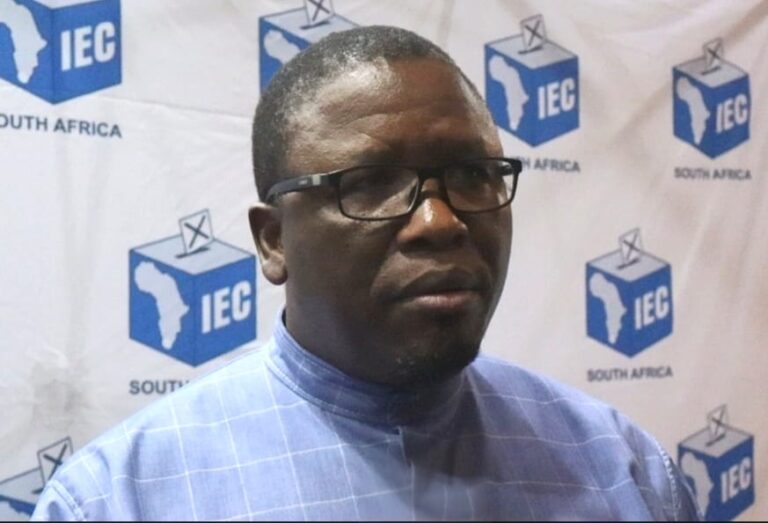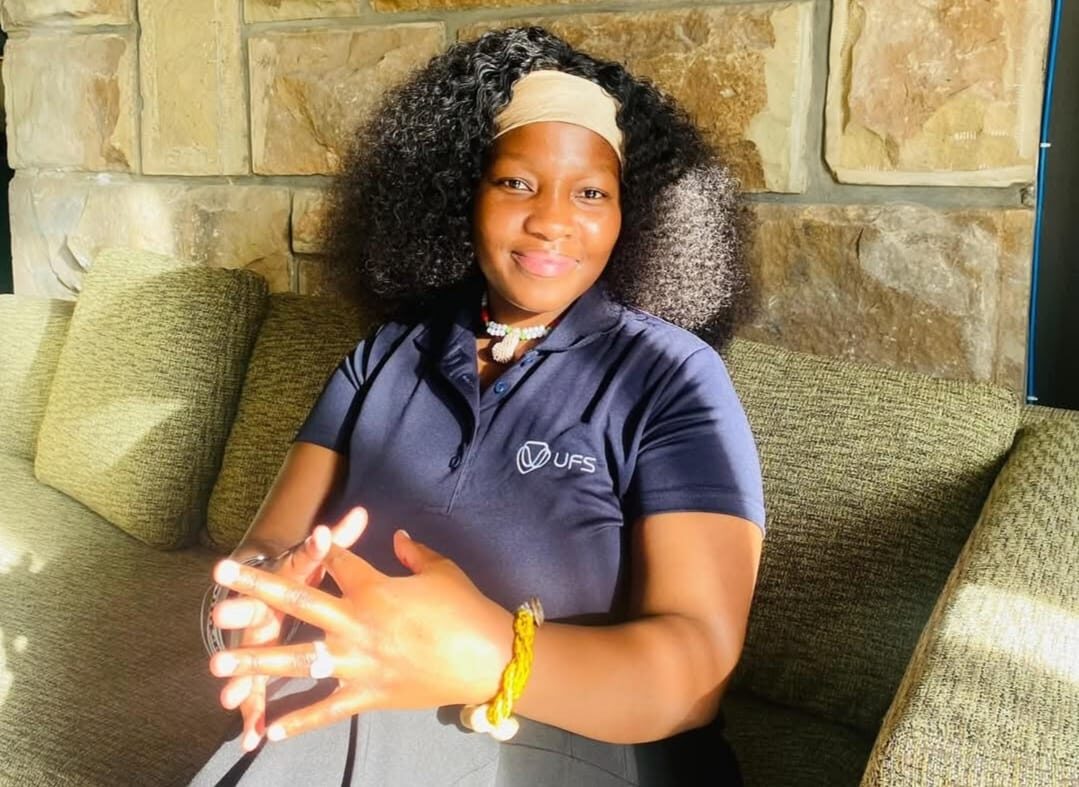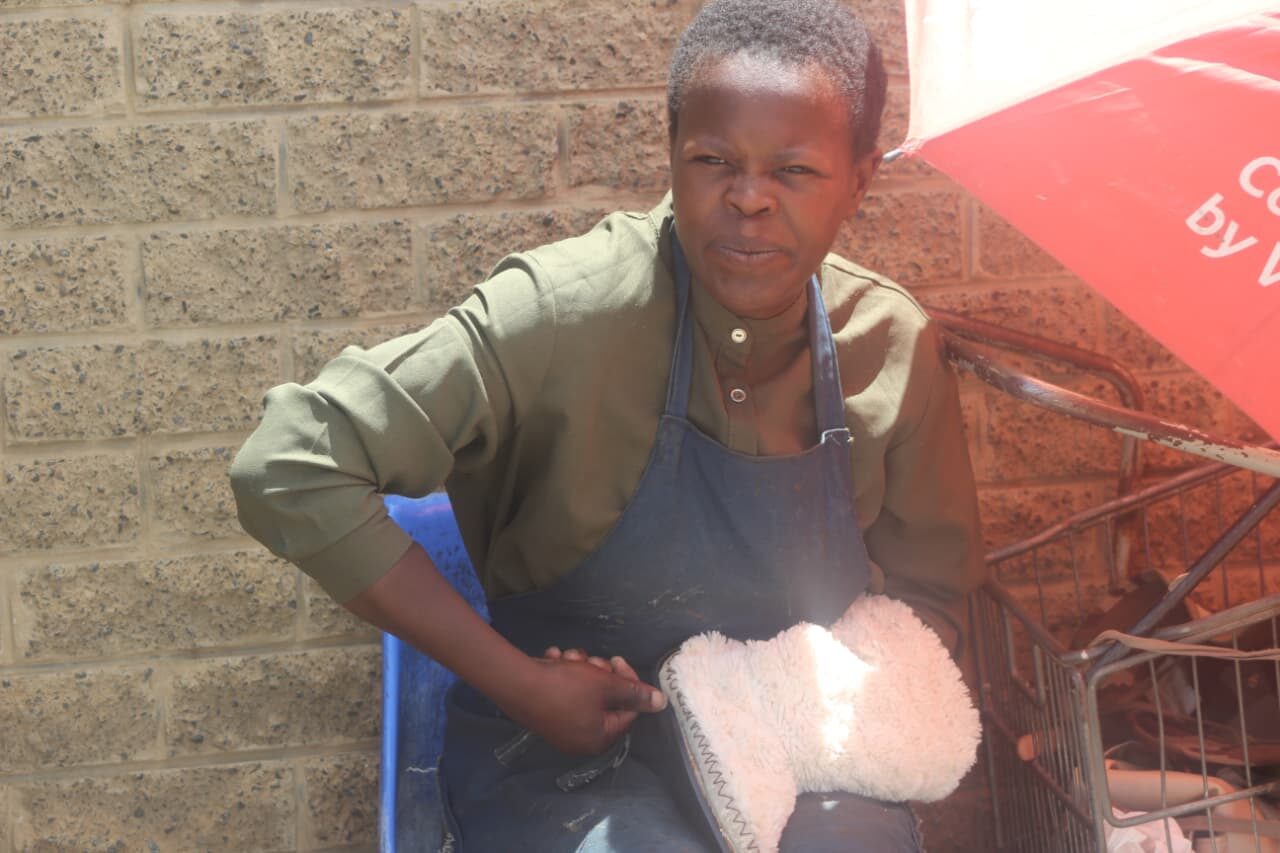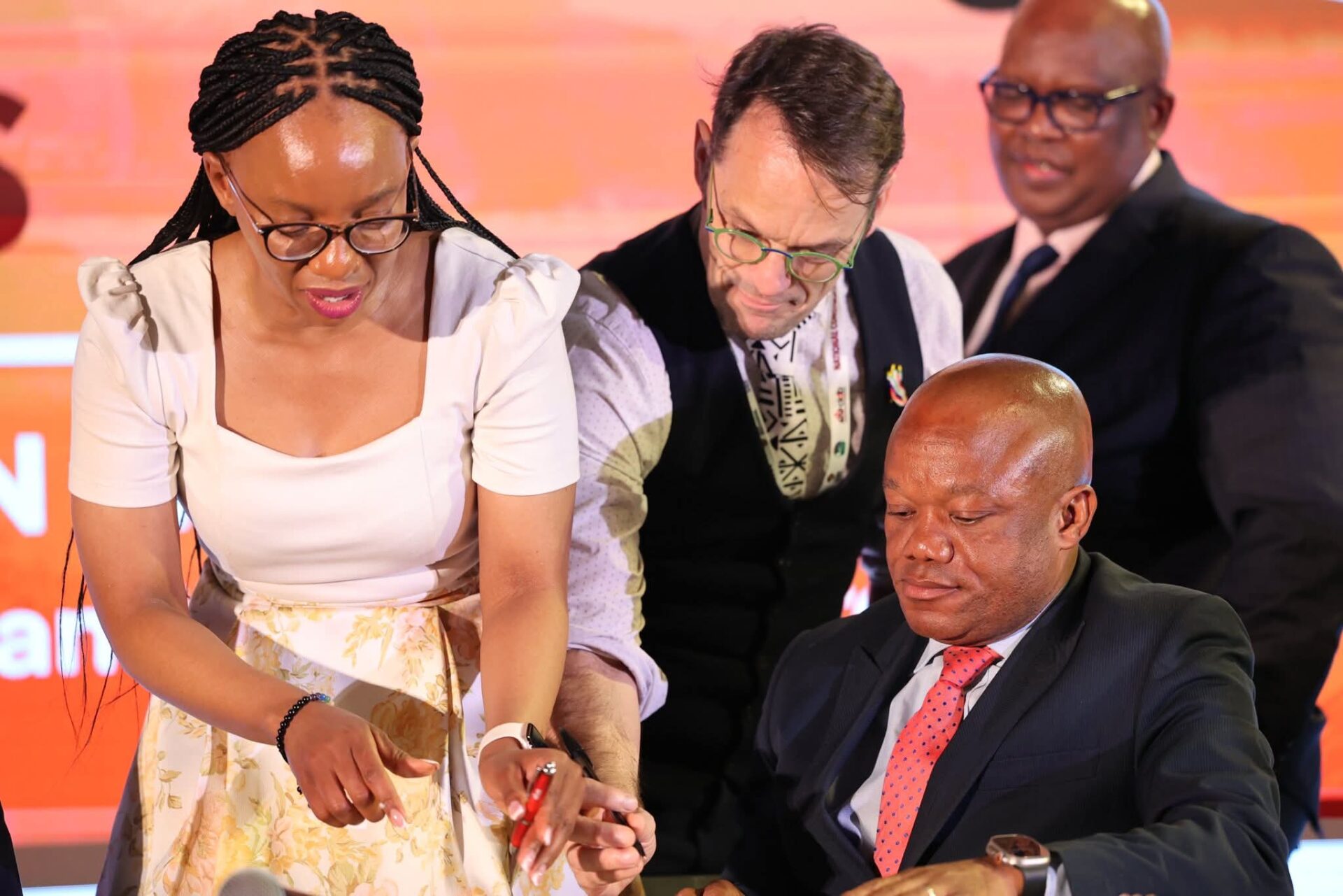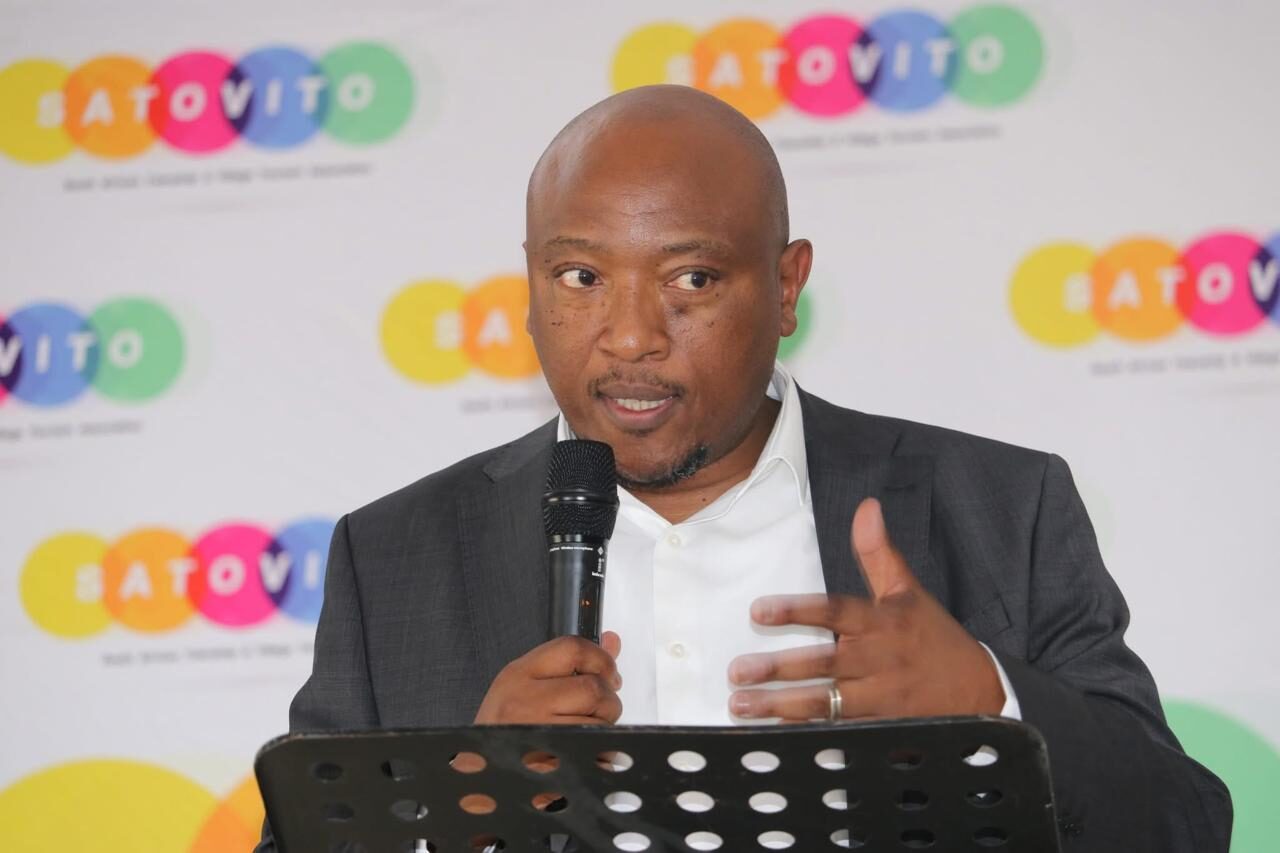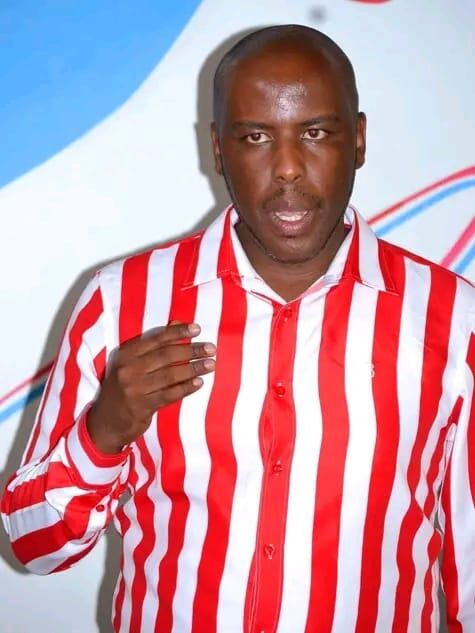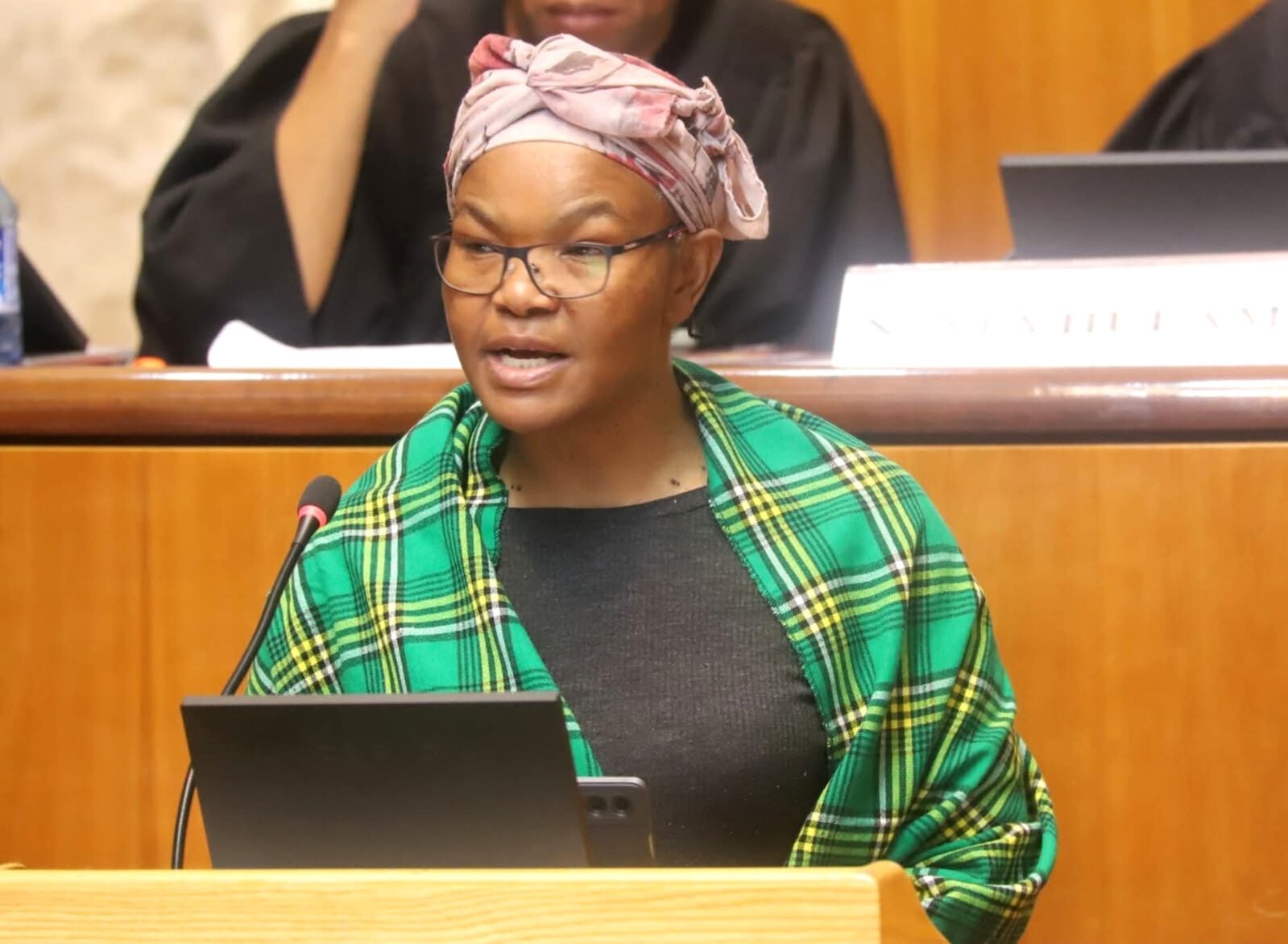By Staff Reporter
In 1993 Andrew Lebea, a Free State Black Industrialist, participated in an empowerment and capacity building project that he says was initiated by South Africa’s first Black President, Nelson Mandela, and New York’s first Black Mayor, David Dinkins.
The objective of the programme was to develop a pool of black corporate bank managers to equip them with skills, knowledge and information that would empower them to play a critical role in the transformation of the banking industry after the country had transitioned to democracy.
Lebitsa spent six months at the Chase Merchant Bank and Baruch College in New York honing his corporate management skills in the bank, and acquiring knowledge through the university’s Executive Management Development Programme.
At the time, little did Lebitsa know that he was bound to follow in the footsteps of the two visionary leaders and blaze his own trail, as he says his No.1 Hair company is the only black-owned hair braids manufacturing company in the country. This was made possible by the support he received from the Black Industrialists Programme of the Department of Trade, Industry and Competition (the dtic).
In line with the vision of Mandela and Dinkins, the objective of the scheme is to produce a pool of capable and successful Black Industrialists who will actively and meaningfully participate in the manufacturing industry and contribute in growing the economy, create jobs and transform the sector in particular, and the country’s economy in general.
Today, No.1 Hair, which operates from the Maluti-a-Phofung Special Economic Zone (SEZ) in Harrismith, is providing employment to 60 people who are producing the synthetic hair braids, or hair extensions as they are commonly known, for both domestic and Southern African markets.
“After a long spell in the petroleum franchise and retail industries, I got into a hardware products import and distribution industry. Many of my retail clients requested me to import hair as well. This was initially never in my mind. But after conducting a research I realised that it was a R9-billion industry in South Africa that these people were indirectly encouraging me to participate it. I decided to get into it,” recalls Lebitsa.
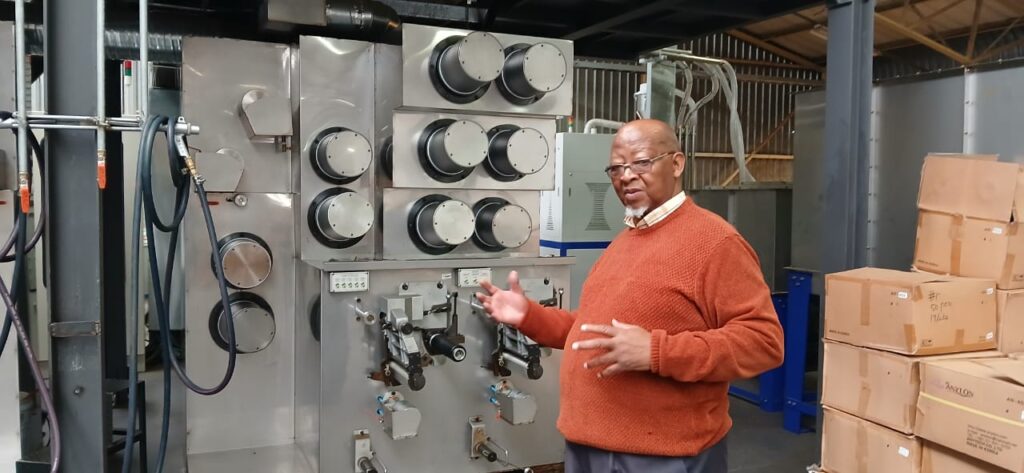
The Managing Director of No.1 Hair, Mr Andrew Lebitsa next to one of the machines that the Department of Trade, Industry and Competition (the dtic) funded him to acquire for his hair braids manufacturing factory based in Harrismith, Free State.
After bouncing off the idea with the late prominent businessperson, Mr Don Mkhwanazi, he advised Lebitsa to consider setting up a plant and manufacture hair in South Africa, instead of importing it. He connected him with two South Korean businessmen who assisted him to set up the factory in the Maluti-a-Phofung SEZ. The location was an obvious choice for Lebitsa as he once worked in the zone while he was employed by the Free State Development Corporation as a property manager.
“That is how No.1 Hair was born. The R60 million state-of-the-art plant was set up with assistance from the dtic and Industrial Development Corporation (IDC). After a delay caused by the Covid 19, we eventually started the production of our brand of hair braids in January 2021. We started with black hair braids and extended our range to numerous other colours over a period of time,” says Lebitsa. He concedes that penetrating the hair market as a black manufacturer has been and remains a steep challenge.
“Firstly, consumers of this product are used to particular famous brands that are all imported. It is not easy for them to warm up to and embrace a new, unknown product. Secondly, but more importantly, it is the problem of perception and stereotypes that one has to deal with in the industry,” stresses Lebitsa.
“As a black manufacturer, you are already disadvantaged when approaching buyers who source products for big companies and retail stores. From not even giving you a chance to present your products to them, to doubting both your capability as a businessperson to deliver on orders, and the quality of your products. It is a big challenge. However, one order at a time we have managed to build quite sizeable number of clients,” he adds.
Lebitsa’s spirit lifts up when he starts speaking about the summer season that he says sparks a high demand in hair braids. To this end, he has received huge amounts of orders that will soon see all of his production lines running at full capacity.
“Despite all of these market penetration challenges, we are making steady progress and continue to grow the company. Slowly but surely we are increasing our own market share. We pride ourselves in being a proudly South African company whose products and raw material are wholly produced in the country. We are hopeful that the Buy Local Campaign will instil patriotism in consumers of our products and enable them to choose locally-produced quality products instead of poor quality imports,” says Lebitsa.
He reveals that his plan is to expand his business by diversifying his product range and venturing into the manufacturing of hair care products.







